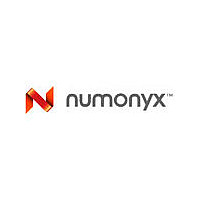M25PX32-VMF6E NUMONYX, M25PX32-VMF6E Datasheet - Page 38

M25PX32-VMF6E
Manufacturer Part Number
M25PX32-VMF6E
Description
Manufacturer
NUMONYX
Datasheet
1.M25PX32-VMF6E.pdf
(68 pages)
Specifications of M25PX32-VMF6E
Cell Type
NOR
Density
32Mb
Access Time (max)
8ns
Interface Type
Serial (SPI)
Boot Type
Not Required
Address Bus
1b
Operating Supply Voltage (typ)
3.3V
Operating Temp Range
-40C to 85C
Package Type
SOIC W
Sync/async
Synchronous
Operating Temperature Classification
Industrial
Operating Supply Voltage (min)
2.7V
Operating Supply Voltage (max)
3.6V
Word Size
8b
Number Of Words
4M
Supply Current
12mA
Mounting
Surface Mount
Pin Count
16
Lead Free Status / RoHS Status
Compliant
Available stocks
Company
Part Number
Manufacturer
Quantity
Price
Part Number:
M25PX32-VMF6E
Manufacturer:
MICRON
Quantity:
20 000
6.11
38/68
Page Program (PP)
The Page Program (PP) instruction allows bytes to be programmed in the memory
(changing bits from 1 to 0). Before it can be accepted, a Write Enable (WREN) instruction
must previously have been executed. After the Write Enable (WREN) instruction has been
decoded, the device sets the Write Enable Latch (WEL).
The Page Program (PP) instruction is entered by driving Chip Select (S) Low, followed by
the instruction code, three address bytes and at least one data byte on Serial Data input
(DQ0). If the 8 least significant address bits (A7-A0) are not all zero, all transmitted data that
goes beyond the end of the current page are programmed from the start address of the
same page (from the address whose 8 least significant bits (A7-A0) are all zero). Chip
Select (S) must be driven Low for the entire duration of the sequence.
The instruction sequence is shown in
If more than 256 bytes are sent to the device, previously latched data are discarded and the
last 256 data bytes are guaranteed to be programmed correctly within the same page. If less
than 256 data bytes are sent to device, they are correctly programmed at the requested
addresses without having any effects on the other bytes of the same page.
For optimized timings, it is recommended to use the Page Program (PP) instruction to
program all consecutive targeted bytes in a single sequence versus using several Page
Program (PP) sequences with each containing only a few bytes (see
characteristics).
Chip Select (S) must be driven High after the eighth bit of the last data byte has been
latched in, otherwise the Page Program (PP) instruction is not executed.
As soon as Chip Select (S) is driven High, the self-timed Page Program cycle (whose
duration is t
may be read to check the value of the Write In Progress (WIP) bit. The Write In Progress
(WIP) bit is 1 during the self-timed Page Program cycle, and is 0 when it is completed. At
some unspecified time before the cycle is completed, the Write Enable Latch (WEL) bit is
reset.
A Page Program (PP) instruction applied to a page which is protected by the Block Protect
(BP2, BP1, BP0) bits (see
PP
) is initiated. While the Page Program cycle is in progress, the Status Register
Table 3
and
Figure
Table
19.
4) is not executed.
Table 18: AC














